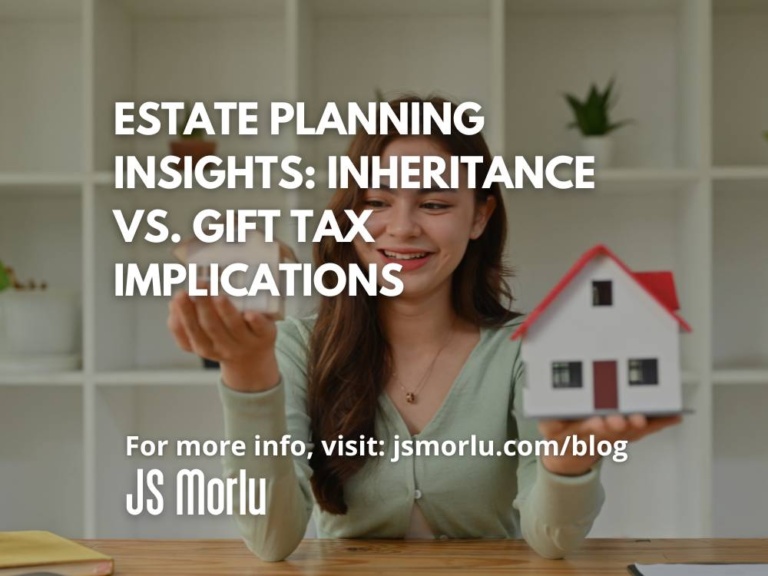Looking to share your home with loved ones? There are two main ways to do so: gifting the property while you’re alive or including it in your inheritance plan. This decision has significant sentimental and financial aspects, with taxes playing a major role. Let’s explore the key tax differences between receiving a home as a gift and inheriting it.
Receiving a Home as a Gift
Gifting a home is a generous act, but it can come with tax consequences for both the giver (donor) and the receiver (donee). Here’s a breakdown of the main considerations:
- Gift Tax: The IRS requires filing a gift tax return if the gifted property’s value exceeds the annual exclusion amount, currently $18,000 per recipient (as of 2024). Most homes will trigger this requirement. While a gift tax itself might not be owed thanks to the lifetime gift and estate tax exemption (currently $13.61 million per person), the home’s value reduces your remaining exemption.
- Basis Considerations: The recipient’s basis in the home, which affects capital gains taxes upon selling, is generally the same as the donor’s basis (carryover basis). This can be a problem if the home’s value has appreciated significantly since the donor bought it. The recipient could face a substantial capital gains tax bill when selling.
- Capital Gains Tax: The capital gains tax owed on the sale depends on the recipient’s basis and the holding period. The home sale exclusion benefit ($250,000/$500,000 for married couples) doesn’t automatically transfer to the recipient. They would need to meet the ownership and usage requirements themselves.
Inheritance
Inheriting a home generally offers greater tax advantages than receiving it as a gift. Here’s why:
- Basis Step-Up: A major benefit of inheritance is the basis step-up. The recipient’s basis in the property is adjusted to the fair market value (FMV) on the date of the decedent’s death. This means any appreciation in value before inheritance is tax-free when selling the home.
- Long-Term Capital Gains Rates: Inherited property is automatically considered long-term held, qualifying for the more favorable long-term capital gains tax rates.
- Depreciation Reset: For properties used for business or rentals, inheritance allows for a depreciation reset. The new owner can claim depreciation afresh based on the inherited FMV, disregarding any prior depreciation claimed by the decedent.
Considering the Bigger Picture
While inheritance generally offers a tax advantage, taxes are just one piece of the puzzle. Here are some additional factors to consider:
- Overall Estate Planning Strategy: Gifting a home can be part of a broader estate planning strategy to reduce your taxable estate. Consulting a financial advisor can help you navigate these complexities.
- Non-Tax Implications: There might be sentimental reasons for wanting to keep the home in the family while you’re alive. Gifting allows you to witness your loved ones enjoying the property.
Conclusion
Understanding the tax implications of gifting vs. inheritance is crucial for informed decisions. While inheritance often provides a tax benefit, consulting with a tax professional or financial advisor can help you determine the best approach for your specific situation.
JS Morlu LLC is a top-tier accounting firm based in Woodbridge, Virginia, with a team of highly experienced and qualified CPAs and business advisors. We are dedicated to providing comprehensive accounting, tax, and business advisory services to clients throughout the Washington, D.C. Metro Area and the surrounding regions. With over a decade of experience, we have cultivated a deep understanding of our clients’ needs and aspirations. We recognize that our clients seek more than just value-added accounting services; they seek a trusted partner who can guide them towards achieving their business goals and personal financial well-being.
Talk to us || What our clients says about us


